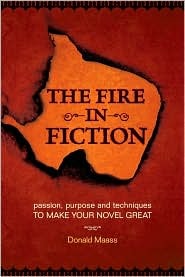The concept of “voice” is an elusive one for many writers, but when you utilize techniques to develop your author’s voice, the narrative voice, and each character’s voice, your manuscript will become significantly more dynamic.
On September 18, 2019, at 7pm, I will be teaching my one-hour workshop on how to improve your author's voice at the Nampa Public Library. There is no charge to attend this event. Bring five pages of your manuscript to utilize during this hands-on process.
Here are a few of my favorite quotes on this topic:
“The author’s voice is about the chosen words, how we report the various senses, how the world we have invented becomes real.” -- Jane Yolen, Author
“A unique way of putting words together … a unique sensibility, a distinctive way of looking at the world. … Voice is a natural attribute. You no more control it than you can control the color of your eyes—nor would you want to. ... Set your voice free, set your words free … set your heart free. It is from the unknowable shadows of your subconscious that your stories will find their drive and from which they will draw their meaning. No one can loan you that or teach you that. Your voice is your self in the story.” – Donald Maass, Literary Agent
“A strong, distinctive, authoritative writing voice is something most fiction writers want—and something no editor or teacher can impart. There are, after all, no rules for writing like yourself. Voice is, however, something you can bring out in yourself.”
– Browne & King, Self-Editing for Fiction Writers
“It is … the outlook, opinions, details, delivery, and original perspectives that an author brings to his tale. Above all, a singular voice is not a lucky accident; it comes from a storyteller’s commitment not just to tell a terrific story but to tell it in a way that is wholly his own.” -- Donald Maass, Literary Agent





